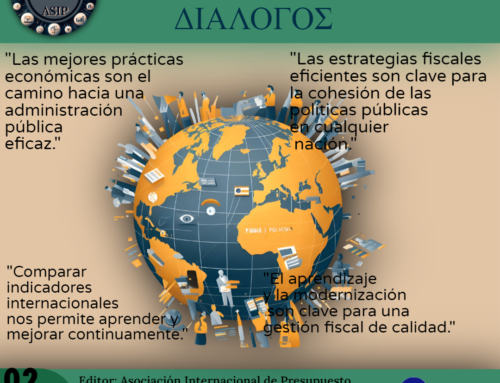Noviembre / Diciembre 2019
Artículos:
Doing More with Less: How Can Brazil Foster Development While Pursuing Fiscal Consolidation?
Valentina Flamini and Mauricio Soto
How People Think About Fairness and Why It Matters for Equitable Budgets
Jason Lakin
Améliorer l’efficience de l’investissement public en France
Pierre Guérin
NOTA EDITORIAL
Facing the challenges of a changing economic and political context with suitable public policies is essential for the governments, because, even though the economic growth and investment in recent years have reduced absolute poverty, as shown in the statistics, the labor market does not always ensure better wealth distribution and equality. The main tools for fighting against inequality are the tax systems and social spending, aspects of public administration that are determined by the way we think about fairness. The tax systems or the public spending, however, reflect in many countries the elites’ political power, and that enables to infer that in many cases, the challenge is to counteract, through political reforms, the power of these established sectors and other power factors which in the end determine the way in which incomes are collected and how they are spent. It is a challenge absolutely exceeding the natural field of the specialists in budgeting issues, but which has to be taken into account in order to evaluate the different aspects of the social inequality issue. This is the challenge of this era for a region which, in addition to growing, must aim for the integral development of its social organization system.
In the article titled Doing More with Less: How Can Brazil Foster Development While Pursuing Fiscal Consolidation? Valentina Flamini and Mauricio Soto, following a benchmarking exercise, estimate the spending required for reaching satisfactory progress in the Sustainable Development Goals in the health, education, and infrastructure sectors in Brazil. The authors find that there is room for savings in education (up to 1.5 percentage point of GDP) and health (up to 2.5 percentage points of GDP) without compromising the quality of services. However, additional investments for over 3 percent of GDP per year are needed to close large infrastructure gaps in roads, water, and electricity by 2030. Brazil can do more with less, but increasing efficiency of public spending will require substantial reforms.
Jason Lakin argues that creating a moral case for fair budget policies – one that can galvanize a broad coalition – is integral to achieving progress. In an article tilted How People Think About Fairness and Why It Matters for Equitable Budgets the author maintains that generating broad support for a particular conception of fairness is a vital tool in the fight for more equitable policies. We know that perceptions of fairness differ, though, and we know relatively little about how people think about fairness or why they hold these beliefs, he points out. Therefore, we need to learn more about the structure of people’s beliefs, particularly in countries where we are investing heavily in supporting efforts to make policies fairer, and for that reason we need to collect more data on attitudes about fairness and redistribution and to test ideas about how those attitudes can shift over time or as a result of framing and persuasion.
“Improving the efficiency of public investment in France” has been written by Pierre Guérin, who argues that public investment can stimulate demand in the short term and suitable infrastructure can also raise productivity and contribute to more inclusive economic growth by ensuring equal access to the labor market, education and health care. The author maintains that France makes substantial public investments and its stock of public capital is large. In particular, France’s infrastructure network is well developed and ranks favorably in international comparison. Yet, the capital efficiency of existing infrastructure may have been hampered by a lack of maintenance and upgrading investments in some sectors. To take full advantage of its public investment, France must strengthen and develop its strategy to meet several challenges, including by promoting socioeconomic-efficiency considerations in the selection of investment projects, harmonizing procedures extending over the life-cycle of investment projects between sectors and administrative levels, and concentrating investments of some sectors on the maintenance and quality of the capital stock. Moreover, as local governments are responsible for most of public investment, continuing efforts to clearly allocate responsibilities across the different levels of government will be helpful to reap the benefits of economies of scale and scope. Public investment should also be geared towards fulfilling environmental, digital, and research and innovation objectives to meet France’s domestic and international commitments and secure stronger and more sustainable growth. Public investment choices will need to crowd-in private investment to meet these objectives and raise potential growth, including by developing a pipeline of ready-to-finance projects and dynamically adjusting public support to energy and climate change policies.
The articles published in this issue of the International Journal of Public Budget contribute to the divulgation of the most important debates taking place today worldwide within the field of budget and public finances.



